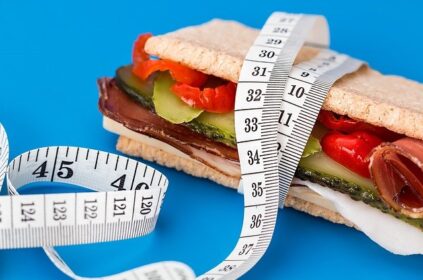With so many diet plans available how can you possibly fully understand what they have to offer and make the best choice? It’s true that a diet that gives one person great results can give another person little to no results at all. Even more confusing is that a diet plan which worked initially may lose its zest and seem to stop working after just a few weeks.
So the question becomes: How can you select a plan that is going to work well for you and the health goals you have set for yourself?
Before you select any diet plan you must first check in with your brain to be sure it’s on board with your desire to lose weight and become healthy. Our brain is very powerful and can convince us to succeed or encourage us to fail. Even if you’ve tried and failed to meet your goals in the past, you have to put your brain on notice that this is a new day. Yesterday is gone…but today you choose something better.
Be sure you give yourself a lot of positive self-talk so your efforts are not sabotaged. The best way to ensure your diet will succeed is to balance the efforts of your mind with the efforts of your body (exercise) and your new nutrition plan.
Now that your brain is on board, it’s time to look at your lifestyle. Are you so busy that you don’t believe you will take the time to prepare nutritious meals at home? Or, do you travel frequently and find you often eat at restaurants or airports? Are you on the road shuffling kids around and running errands only to find you delay eating until you are so hungry that any drive thru option seems like a pot of gold at the end of a starving rainbow?
You should select a diet that works with your current lifestyle habits. If you choose a plan that calls for home cooked meals and you are always travelling, then you are setting yourself up to fail. However, if you are on the road a lot and have the time and motivation to pre-pack snacks and meals to carry in the car with you, then the diet plan could work for you.
Any diet plan should educate you about the most recent information regarding nutrition and how your body utilizes the fuel you feed it. Knowledge is power. Armed with the right information you will be able to make better food choices at restaurants or on the road.
Finally, choose a diet plan that contains foods you will eat. Chances are you may eat some of what is suggested; however, there will be new items introduced intended to improve your overall nutritional health. For example, you wouldn’t choose a diet plan that relied heavily on steamed brussel sprouts if just the thought of this makes you sick. If you are allergic or intolerant to foods containing gluten then steer clear of a diet plan that includes this ingredient.
In choosing the best diet plan, you have to be mentally motivated to succeed. Then, take a look at your current lifestyle and eating habits to be sure the plan will fit or you are willing to make adjustments to make the diet plan a success. Finally, be sure that no matter which diet plan you choose you make a commitment to learn about food and the benefits or harm it can produce.







